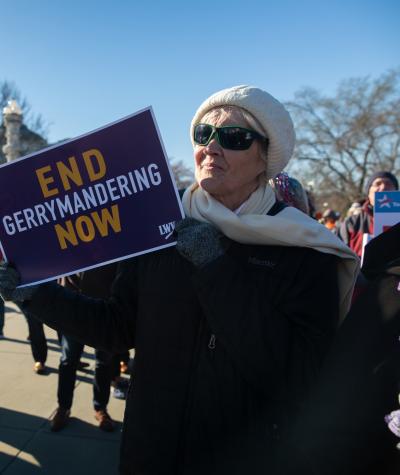The U.S. Supreme Court declared it was unable and unwilling to use its powers to stop partisan gerrymandering in the majority opinion authored by Chief Justice John Roberts on June 27, 2019 in the case Rucho v. Common Cause.
Despite this setback, two years later, the fight to create fair maps during the 2021 redistricting cycle that allow voters, not politicians, to decide elections is still alive and well.
People and groups on the ground in a number of states are actively addressing the issue of fair maps with the remaining tools available, including through state constitutional amendments and legislation to reform the community districting process.
In the time since the Rucho decision, there have been victories for fair maps in states like Michigan and Virginia, which serve as examples of how states can take action to stop self-interested politicians from drawing maps favoring their reelection and empower citizens to make maps that accurately and equitably represent people.
In 2018, an overwhelming majority of Michigan voters approved a constitutional amendment to create a citizen-led independent redistricting commission (IRC).
However, in 2019, partisan-connected individuals and the Michigan Republican Party launched an effort to undo the will of the people to try to protect their political power. They sued Michigan’s secretary of state to prevent the IRC from going into effect.
Campaign Legal Center (CLC) is representing Michiganders in the fight to protect their IRC. In December 2019 and July 2020, a federal district court upheld the constitutionality of Michigan’s IRC. And a federal appeals court twice confirmed this victory for CLC and Michigan voters, including most recently, in May 2021.
Taken together, these decisions were a shot in the arm not only for Michigan’s IRC, but for the broader movement to adopt IRCs as a viable solution to gerrymandering across the country.
As in Michigan, last year, Virginia also passed a constitutional amendment allowing for the formation of a 16-person redistricting commission composed of both citizens and state legislators in an attempt to limit gerrymandering.
CLC was a leading national advocate for the passage of this amendment, supporting our local partner, OneVirginia 2021 with coalition advocacy efforts and legal advice.
Virginia law does not allow a constitutional amendment to appear on the ballot until a majority of state legislators in both chambers approve it. This shows how a state legislature can rise above self-interested partisanship and work to improve the community districting process.
Previously, Virginia state legislators have enacted extreme gerrymanders that have undermined the ability of many communities to be represented. The commission’s design enables it to adopt more public feedback, and the process is more transparent.
This change will help ensure that the representatives chosen in future elections are more responsive to the people’s needs.
Enabling legislation approved after the constitutional amendment requires that Virginia’s redistricting commission adhere to key criteria for racial and ethnic minority communities, such as the protections offered under the 14th Amendment and the Voting Rights Act, when making new voting districts.
CLC is also trying to give voice to citizen activists from around the country, who want to raise awareness about gerrymandering and put pressure on state lawmakers to take partisanship out of the mapmaking process, through the #OurFairMaps campaign.
When the U.S. Census delivered data for apportionment in the states at the end of April, people from states like Illinois and Wisconsin, which currently have maps that serve politicians instead of voters, demanded that future maps fairly represent the people in their communities so that they can use their vote to make their voices heard on the issues that matter most to them.
However, not all action taken against gerrymandering must be confined to the state or local levels. Even though the Supreme Court has refused to use its power to stop gerrymandering, Congress can still take action at the federal level to make states’ community districting processes more responsive and accountable to the needs of the people.
If signed into law, the For the People Act, a bill that has passed the U.S. House and is now waiting for a vote in the U.S. Senate, would end gerrymandering at the congressional level.
Furthermore, this legislation would enhance the ability of voters to challenge racially or politically discriminatory maps in court, require meaningful transparency in the mapmaking process and mandate the use of IRCs to draw maps.
A CLC-commissioned poll found that an overwhelming majority of voters—two-thirds—view gerrymandering negatively. In the same survey, at least 60% of Democrats, Independents and Republicans said that they supported the creation of IRCs.
When asked to choose between whether boundaries for legislative and congressional districts should be drawn by state legislatures or an IRC, voters favored the latter by a nearly three-to-one margin.
Since a majority of Americans want to end gerrymandering and have IRCs draw voting district lines, CLC will continue to fight for fair maps. Elections should be determined by voters, not self-interested politicians seeking personal gain. Every state should use maps that guarantee that every vote counts equally and every voice is heard.
